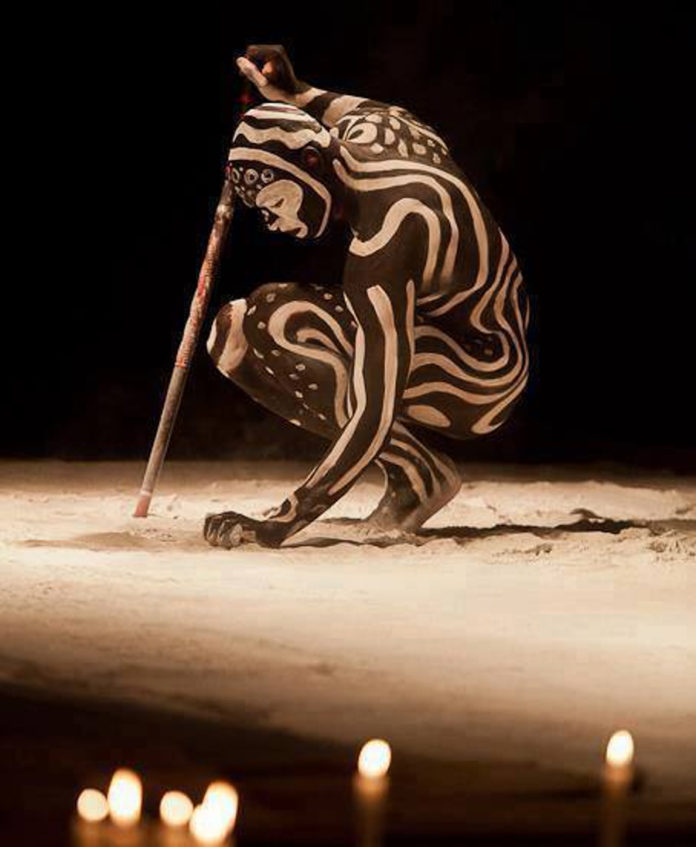There is a tale of two men: the primitive accumulator and the civilized. Their souls could not be more opposite. Their aims could not be more disparate. Their lives could not serve more different purposes and mores.
The primitive accumulator deals in exact quantities of things, the civilized in immeasurable, irreproducible abstractions. The primitive accumulator packs as much as he can into his knapsack. What he cannot fit, he buries, to return later with ten knapsacks, or as many as it takes to fit all. The civilized takes as much as is needed, but no more.
The primitive accumulator is perplexed with the civilized’s decision to restrain from indulgence. Having it all and keeping all from others is the primary goal of the primitive accumulator. He knows no other way of life.
In fact, the primitive accumulator cannot rest his eyes. What he sees is what he wants. When there is all the world to see, he, of course, wants it all—the whole world, the universe. The civilized thinks that wish is not only futile but also pure folly. You want all? All the trees in the forest? Every tree? Every forest? All the fish in the sea? All fish? Every sea? All the stars in the sky? Even the sun? Of course, there is no such thing as possessing all, because all is beyond the reach of man.
The primitive accumulator cannot accept his fallibility and therefore cannot grasp the ludicrosity of his quest. The thought that he, as man, should be limited makes him all the more gung-ho to accept the civilized’s heeding as a challenge. He goes about being primitive, attempting to accumulate what can fit into his knapsacks and more—all the rocks he can carry, he melds into jewelry and counter-tops; all the trees he can find, he molds into cardboard and hardwood floors; all the animals he can skin, he uses for jackets and shoes and sofas and watch bands (or, more accurately, has others he has primitively accumulated perform the labor).
Shiny new things are the objects of fancy of the primitive accumulator. Not before long, he has primitively accumulated gazillions of things. He calls his primitive accumulations “inventory” and hoards them in large boxes he calls “warehouses.” He creates entire philosophies around primitive accumulation, such that his primitive actions would sound erudite and not shallow-minded. Wisely, the civilized is not fooled with his bait-and-switch jargon.
The civilized is mildly amused by the primitive accumulator’s behavior. His want for more, his naivety in thinking that he could actually obtain more is foolhardy. The more he wants, the more he creates desire for things he did not before notice. The more he wants, the more he realizes he does not have. The more he wants and takes, the more he destroys, the less there exists to have. What is this self-eating disease of having more things?
To collect things is the primitive accumulator’s ultimate goal. Yet, the want for more, for all, impels a reckless tumble down an abyss, an uncontrolled free-fall into ever-increasing depths, a haphazard acceleration into channels of no return. The primitive nature of it all means that it never advances beyond its initial trance. No number or amount of things will gratify his bottomless appetite. Gluttony has no satisfaction.
The civilized takes no such treacherous descent into materialism. His life is not defined by inquiries of how many or how much? The civilized spends his years appreciating, and not liquidating, the fruits of the earth. He does not attempt that which liquidates the entire planet.
The more that concerns the civilized is of a higher order than the primitive accumulator’s more: it is the choice of culture over materialism, the choice of Ma’at over war, the choice of spirituality over religion, and the choice to seek the soul of Timbuktu over the ravenousness of Cambridge. The primitive accumulator mass produces and mass consumes—even violently consuming the labor of his own species, and savagely overwhelming the African source of his own origin. The civilized attends to the beauty of a few, to tinker and refine and tease out even more artistry.
On the road to civilization, if civilization is what is truly desired, the primitive accumulator derails well before the last stop. The civilization train does not accommodate the excess baggage of the primitive accumulator.
In a tale of two men, only one adds more wealth to the earth. For all his things, the primitive accumulator has gained nothing at all or added nothing of value to the earth. What he has accomplished is at best a gross negligence of his humanity, or worse, his own destruction. If civilization is what is truly desired, the primitive accumulator’s path does not lead there.











Let me take the opportunity to admit that after reading this piece, I feel that a new paradigm shift has happened. A shift from the afore-adored ideologies of man’s barbaric relationship with fellow man, and his violent relationship with his environment, which have been cunningly stipulated only by white supremacist inclinations as “good.” A “good” to be imitated. Hitherto, a so-called “tribal” man in the middle of the Amazon forest or the Congo, far removed from cell phone towers and television sets, and from the barbarism of unending wars, was thought off, and taught to us, as primitive man, incapable even of civilization.
But, Nefetiti, and my brother Narmer, are spearheading a shift from that discourse, elaborating and defining the invisible but violent inhumanity of western powers, the against-life ideologies of western academia, which stand between peaceful man and his fellow peaceful man, and which stand between thoughtful man and his life-supporting environment. The new shift involves naming the violence we now see ever so clearly – colonialism, imperialism, AFRICOM, NATO, Capitalism, Globalization, etc. – without mincing words, and rather lifting up Congo-man and Amazon-man, although they cannot be entirely perfect, as the true examples of humanity at peace with humanity and his environment (Ma’at). This essay was beyond enjoyable for me. Thanks Nefetiti!
Delineating the differences between civilization and barbarism (primitive accumulation) remains a difficult task, made even more difficult by the rich and violent propaganda of the economics of barbarism newly spreading like wildfire across the planet.
But here Nefetiti makes it a straightforward exercise: “The more that concerns the civilized is of a higher order than the primitive accumulator’s more: it is the choice of culture over materialism…”
There you have it. Nefetiti has spoken and the more I write I spoil it. Enjoy!
The extremists, that is what I call them, in the United States, Canada, Australia, White Southern Africa, and Europe have a deep, visceral, ideological objection to the very notion of humanity, of a common human family with a common human or public service existence. These extremists, which you might call mutants (deservedly), detest anything that can be operated for the greater common good. It offends their religious principles (which is not Ma’at): their ardent, abject worship of Mammon, which puts the private profit of the privileged few above all other considerations — and certainly above the lives of ordinary people, the worthless rabble (and more, the “savage Blacks”) they despise so much.
The enrichment of the rich and the empowerment of the powerful is the doctrine of these transatlantic mutants; and they don’t care how many people have to die, how badly society degenerates, how low the quality of life becomes, as long as Mammon’s will be done. They are vile and wretched creatures, eaters of their own souls, hollowers of their own humanity.
We are living in an age when all the masks are coming off and our pale violent rulers are showing their true faces at last: rapacious, ravening, cruel and implacable mutants! Thanks Nefetiti for being so brave in putting a face and a name to what has been faceless!